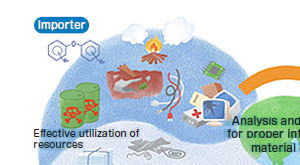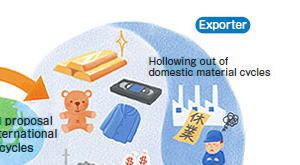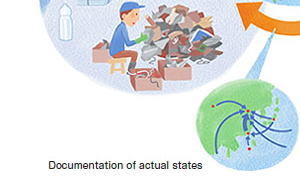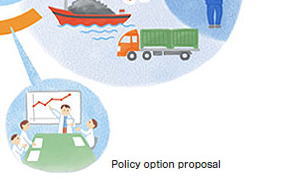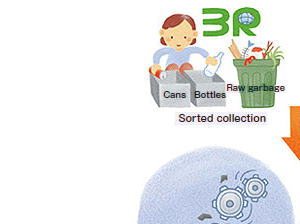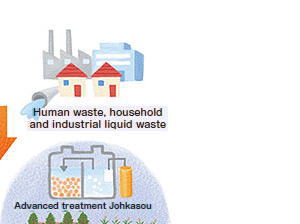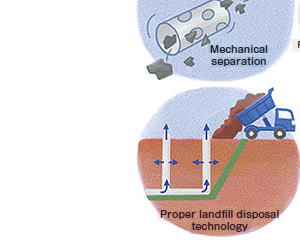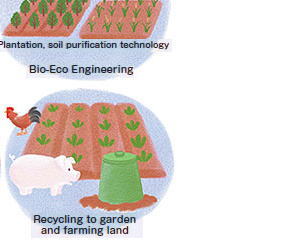On the increase in recent years are cases in which end-of-life products and materials regarded as waste in Japan are utilized as resources in other
countries in the Asia region, and recyclable resources traded internationally are increasing in quantity. In the meantime, waste generation
in Asian countries is also increasing with their economic growth, including residues after the utilization of recyclable materials.
In this research project, we will analyze international material cycle systems together with understanding of the actual states of
material cycles and waste disposal in Asian countries consisting mostly of developing countries so that we may make our contribution
to the promotion of sound material cycles in the Asia region. Further, we will develop and evaluate technology systems suitable for
developing countries to achieve both proper waste disposal and global warming prevention as a measure from a technical aspect. We will construct an appropriate management
network and technology systems to promote sound material cycles in the Asia region by combining the above-mentioned measures.For example, we may develop an international
material cycle evaluation technique reflecting the actual states of international material cycles and environmental impacts, propose
low environmental impact technology systems for several cities in Asia and a method to commercialize a clean development mechanism (CDM).
This research project comprises the following three sub-themes.
We will perform a comprehensive analysis including background factors while clarifying the actual states of international material cycles.
With three aspects, pollution risks, resource potential and economy, in mind, we will develop a method to evaluate international material
cycles. More specifically, we will identify the current and potential environmental impacts caused by or in connection with material cycles
and develop a method to evaluate international material cycles including index representations of environmental impacts, while making an
analysis of related factors such as regulation, supply-demand and cost, so that we may promote proper international material cycles.
We will design and evaluate a network for appropriate material cycle management in the Asia region and finally propose related policy options.

We will endeavor to identify the states of pollution caused by persistent organic pollutants (POPs) and inorganic pollutants such as mercury in the process of recycling and
using E-waste (waste electronic and electric equipment). Through field surveys and joint research efforts with local researchers, we will
examine methods of collecting soil and other samples, testing and analyzing them, and evaluating toxicity and monitoring and study survey methods suitable for understanding
of environmental impacts in Asian countries. Through this activity, we will grasp outlines of environmental impacts caused by material cycles
and utilize the findings for the development of emission factors (inventory) and the examination of possible countermeasures.

As technical measures for solid waste management, we will propose several schemes tailored to local situations to introduce a collection system with a separation at the
source and supplemental technologies such as mechanical sorting and biological treatment in order to avoid the disposal of organic materials
and hazardous substances to landfill. Further, we will integrate methods to monitor and estimate greenhouse gas emissions from waste
landfill sites and design a model to estimate the effect of introducing improved practices and technologies such as waste sorting and
collection, the biological treatment and the semi-aerobic landfill, etc. for the project design of a CDM.
As for technical measures to deal with liquid waste, we will take note of differences in the properties of sewage and unused biomass from
those observed in Japan and the insufficient development of recycling systems especially in China. Then, we will design and develop a Bio-
Eco system suitable for developing countries considering material cycles for liquid waste and evaluate the feasibility of its application
to local conditions. Through this activity, we will establish a technology system to achieve both greenhouse gas reduction and recycling
of sludge and biomass such as residual plant bodies resulting from the integration of sewage treatment and processing and put incentive
policies in place to propagate such a system.




